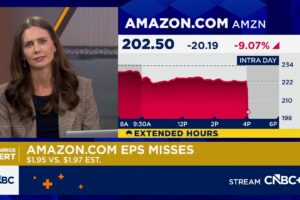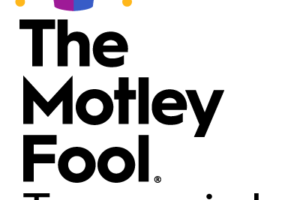<p class="canvas-atom canvas-text Mb(1.0em) Mb(0)–sm Mt(0.8em)–sm" type="text" content="Canopy Growth (CGC) remains under pressure as investors flee risky and speculative holdings, uncertainty continues to surround the cannabis sector, and the company itself under performing and as a result, removing its co-CEO, Bruce Linton.” data-reactid=”11″>Canopy Growth (CGC) remains under pressure as investors flee risky and speculative holdings, uncertainty continues to surround the cannabis sector, and the company itself under performing and as a result, removing its co-CEO, Bruce Linton.
Some of the major questions are how much control Constellation Brands is going to continue to exercise over the company, and by extension, if that will be a positive; whether or not its long-term commitment to acquire Acreage Holdings will ever pay off; and whether or not it can solve the surprising decline in revenue associated with recreational pot.

<p class="canvas-atom canvas-text Mb(1.0em) Mb(0)–sm Mt(0.8em)–sm" type="text" content="Recent woes” data-reactid=”22″>Recent woes
Canopy has taken a big hit because of the surprises that caught shareholders and the cannabis market in general by surprise. Its last earnings report was a huge disappointment, with the decline in recreational pot sales being especially troubling. In the immediate aftermath the firing of Bruce Linton was just as much of a surprise, and that combination put a lot of downward pressure on Canopy.
At about the same time the debacle surrounding CannTrust growing pot in unapproved of facilities put more fuel on the cannabis industry fire, causing even more downward pressure on Canopy, and the sector in general.
Another factor that could prove to be larger over the long-term is its decision to acquire the rights to buy Acreage Holdings as its major move into the U.S. cannabis market. Those rights were in place for a period of 90 months from the time the deal was agreed to.
The obvious implication there is there is no certainty as to how long it’ll take for cannabis to be legalized at the Federal level in the U.S., if it ever is.
<p class="canvas-atom canvas-text Mb(1.0em) Mb(0)–sm Mt(0.8em)–sm" type="text" content="Recreational pot sales” data-reactid=”27″>Recreational pot sales
The number that concerned the market in the latest earnings report of the company was it loss of 4 percent in net revenue over the prior quarter. Consensus was it was going to climb by 17 percent.
Not only that, but the reason behind the huge miss was the surprisingly weak recretional pot sales in Canada. That’s especially troubling when considering major rival Aurora Cannabis has been consistently boosting recreational pot revenue, even while being primarily a medical cannabis company. It appears Canopy vastly overestimated the market for cannabis oil and softgel products in the reporting period. Even so, on the medical cannabis segment of Canopy, it actually did quite well in the last quarter.
Another issue outside of the control of all companies competing in Canada has been the slow roll out of retail outlets and dispensaries. This has hindered all companies in regard to revenue potential.
That said, it appears Canopy has unique problems because the majority of its peers continue to enjoy an upward trajectory of revenue growth, while Canopy has declined. That points to internal issues that must be solved.
<p class="canvas-atom canvas-text Mb(1.0em) Mb(0)–sm Mt(0.8em)–sm" type="text" content="Acreage Holdings” data-reactid=”32″>Acreage Holdings
Paying for the rights to acquire Acreage Holdings is going to prove to be either a great move that will be applauded in the future, or will be considered the biggest mistake the company made; even bigger than giving up control to Constellation Brands.
The biggest question investors must answer for themselves is whether or not the U.S. is really going to legalize cannabis at the Federal level. A secondary but important question is, what will Acreage Holding be at the time the acquisition is consummated if pot is legalized in the U.S.? A lot can happen over a 90-month period – both positive or negative.
Obviously the U.S. is the largest cannabis market in the world at this time. While the economy of the EU is larger, it would take a significant change in sentiment for recreational pot to be legalized there. For that reason, the U.S. should remain the largest market for the foreseeable future. Even if the EU were to change direction, it would take time to implement the changes. For that reason, the U.S. market will remain extremely important.
The issue isn’t whether or not to focus on the U.S. and look for potential opportunities, the issue is whether or not the U.S. is going to legalize. To allocate resources and potentially many years waiting for something that may never happen, is a huge risk for Canopy Growth.
Of course if cannabis is legalized, Canopy will look like geniuses. If not, it will have wasted a lot of capital and time waiting for something that was never going to happen.
I know it’s popular in the financial press to assert, “it’s not a matter of if, but when” cannabis will be legalized. But the reality is, that isn’t necessarily going to be the case. And even if it is, it could take much longer than the 90-month period included in the deal.
The fact is much of the future performance of Canopy Growth is tied into whether or not it will ever be able to acquire Acreage Holdings, and if so, how long it’ll take to do so.
I’m convinced it’s going to be later rather than sooner, if it ever happens at all
What will likely happen is most, if not all the states will legalize cannabis at the medical level, and a large number of them will legalize recreational pot. Once it is accepted in most states, that may possibly lead to Federal legalization.
I think a lot of that will depend upon how large the global market is at that time and whether or not it would be worth taking the step of legalization to take a piece of that market.
<p class="canvas-atom canvas-text Mb(1.0em) Mb(0)–sm Mt(0.8em)–sm" type="text" content="Conclusion” data-reactid=”47″>Conclusion
I think Canopy Growth will be a decent company, but it’s probably not going to be the performer many in the market and financial media had been portraying it to be.
About the only thing I see changing that thesis is if it is allowed to acquire Acreage Holdings at some point in the future, and Acreage Holdings proves to be a solid company in and of itself.
Like mentioned earlier, there is no way to know, if it takes years for legalization in the U.S., what type of company Acreage Holdings will be.
<p class="canvas-atom canvas-text Mb(1.0em) Mb(0)–sm Mt(0.8em)–sm" type="text" content="Unsurprisingly, investor sentiment is also very negative, with individual portfolios in the TipRanks database showing a net pullback from CGC.” data-reactid=”51″>Unsurprisingly, investor sentiment is also very negative, with individual portfolios in the TipRanks database showing a net pullback from CGC.
With that in mind, Canopy Growth will have to perform based upon the parameters it is allowed to compete in. For now, that doesn’t look too impressive going forward.
<p class="canvas-atom canvas-text Mb(1.0em) Mb(0)–sm Mt(0.8em)–sm" type="text" content="Disclosure: None” data-reactid=”53″>Disclosure: None
<p class="canvas-atom canvas-text Mb(1.0em) Mb(0)–sm Mt(0.8em)–sm" type="text" content="Visit TipRanks’ Trending Stocks page, and find out what companies Wall Street’s top analysts are looking at now.” data-reactid=”55″>Visit TipRanks’ Trending Stocks page, and find out what companies Wall Street’s top analysts are looking at now.







